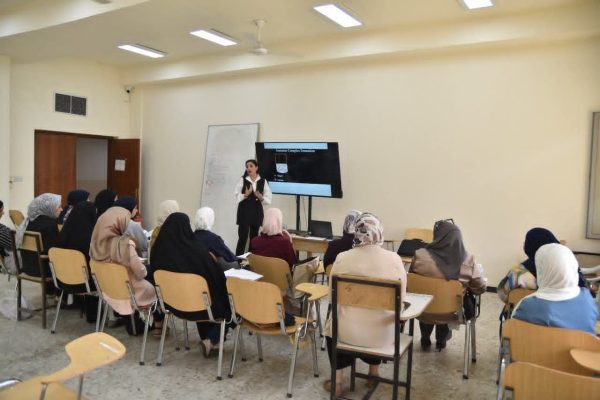Under the patronage of the Dean of the College of Science for Women, Professor Dr. Sameera Naji Khdim, the Department of Biology organized a workshop entitled
“Agglutination Test: Types, Principles, and Immunological Diseases”,
presented by Dr. Rasha Majid Abdulameer, with the attendance of several faculty members and postgraduate students.
The workshop aimed to introduce immunoagglutination tests and highlight their importance in microbiology and clinical immunology, as they are considered among the precise and rapid diagnostic methods that rely on the specific interaction between antigens and antibodies to identify diseases.
The presentation included an explanation of the types of direct and indirect agglutination tests, the basic procedural steps, and the factors influencing test accuracy, such as sample purity, temperature, and reaction time, along with practical demonstrations illustrating the examination mechanism.
The workshop also addressed the applications of agglutination in detecting diseases such as brucellosis and typhoid, determining blood groups, conducting compatibility tests prior to blood transfusion, and diagnosing certain immunological and viral diseases.
The event witnessed productive engagement from participants through scientific questions and discussions, emphasizing the importance of such activities in enhancing practical skills and improving students’ competence in laboratory work.
In conclusion, the lecturer emphasized that understanding the mechanisms of immunoagglutination constitutes a fundamental step in developing clinical analytical and molecular immunology techniques, contributing to diagnostic accuracy and rapid disease detection, thereby supporting the quality of healthcare services.











